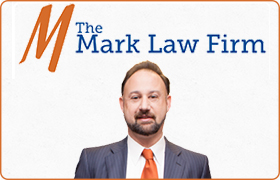 Towaco Felony Lawyers, New Jersey
Towaco Felony Lawyers, New Jersey
Sponsored Law Firm
-
 x
x

Click For More Info:
-
Mark Law Firm
675 Morris Avenue, Suite 102 Springfield, New Jersey 07081 » view mapCar Accident Call Now For A Free Initial Consultation
Life changes drastically in the aftermath of a serious accident or injury. Emotional and financial ramifications can also be extensive.
800-736-9780  Jamison Mark Basking Ridge, NJ
Jamison Mark Basking Ridge, NJAttorney At Law - NJ, 2000
Widener University SOL, J.D. - 1999
 Overview
OverviewMark Law Firm is a full-service firm representing the interests of its clients.
 Testimonials
Testimonials"He is certainly one to go to the limit for his clients and his friends."
Sponsored Lawyers
1-7 of 7 matches
Criminal, Felony, DUI-DWI, White Collar Crime, State Appellate Practice
Bar-Nadav Law Offices is a legal service in Hackensack, NJ specializing in criminal law cases. With years of experience in NJ criminal law, we’re confident that we can help you get the most favorable outcome for your case. When you contact Bar-Nadav Law Offices, you get access to the best Criminal Lawyer in Hackensack – we have years of experience handling criminal cases according to New Jersey laws, including: drug crimes, drug trafficking, armed robbery, manslaughter/homicide, domestic violence, vehicular assault, and drinking and driving. Our drunk driving lawyers are among the best in the state. If you have been arrested for any of these crimes, the most important thing you can do is remain silent. A NJ criminal lawyer can handle the case and ensure that your rights are defended completely – we want you to be able to walk away free. Our NJ criminal defense team will aggressively defend you – we build a strong case and never back down. We can even get your bail reduced and negotiate a faster release if that’s a pertinent concern. Whether you’re in need of Hackensack lawyers, a NYC criminal lawyer, or a DUI attorney, Bar-Nadav Law Offices is here to help. And if you’re worried about DUI attorney fees or the cost of NJ criminal court, don’t worry – we’ll be happy to work with you to create a plan that works for you. Defend your rights and give yourself the best chance at a positive outcome with the best NJ criminal attorney. Contact our criminal attorney in NJ today
(more)Criminal, DUI-DWI, Felony, Traffic
The undersigned previously served as the County Wide STOP DWI prosecutor supervising all of the DWI cases/dispositions while also handling all other types of criminal matters. Mr. Conway specializes in DWI/traffic matters while also handling all other types of criminal matters and regularly appearing in Federal and State Courts in New York, New Jersey and CT with offices in Chestnut Ridge, NYC and Hackensack, New Jersey.
(more)






